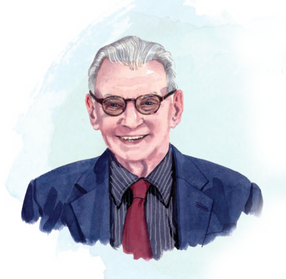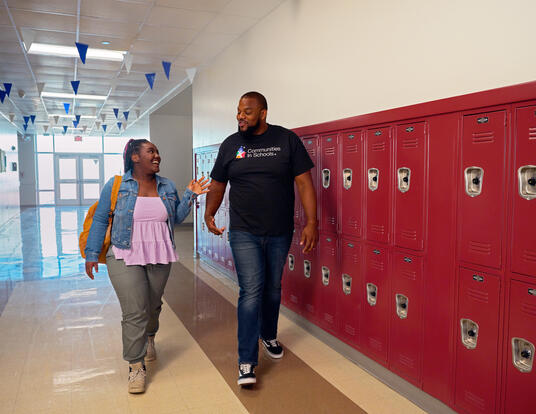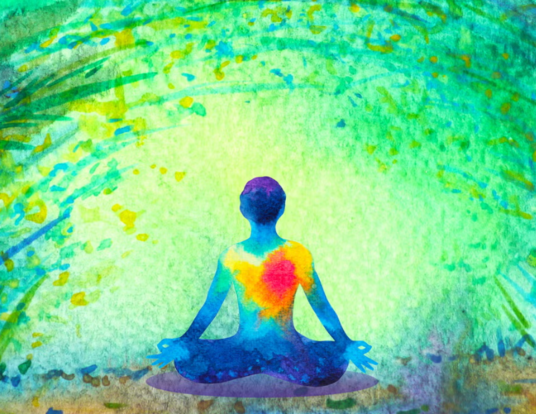Now 93 years old, Martin Duberman knew he was different even as a child—albeit in a way that might surprise those who know him primarily as a gay-rights activist and groundbreaking historian of gay culture. “Different in the sense of being interested in learning and books,” he says. “By college, I had decided I wanted to become an academic, but I ran into considerable opposition on that from my parents,” both of whom could not afford college when they were Duberman’s age and considered graduate school excessive. “They thought I should be content with my undergraduate degree from Yale and making a career in my father’s dressmaking business,” he recalls.
Martin Duberman, PhD ’57, history.
/
Illustration by Matt Cook
To overcome their initial objections, Duberman wrote to Crane Brinton, a well-known Harvard historian and one-time chair of the Society of Fellows, to request an invitation of sorts. “I said I need a letter from you saying that as far as one can predict, I will have a bright future in the history department,” Duberman remembers. Brinton responded with a note that the young scholar was “our number-one choice.” Duberman’s parents relented.
Brinton’s prediction about Duberman’s chances proved spot on. “Martin has an incredible body of work in biography, playwriting, and fiction,” says Marcia Gallo, a former student of Duberman’s who is now an author herself and a professor emerita at the University of Nevada, Las Vegas. “And in addition to being the most encouraging and thoughtful adviser and mentor I could have imagined, he’s also an institution-builder and a philanthropist. In 1991, while at the City University of New York (CUNY), he founded CLAGS, the first ever center for lesbian and gay studies based at a university, and later founded two fellowships for LGBTQ scholars.”
In addition to being the most encouraging and thoughtful adviser and mentor, he's also an institution-builder and philanthropist.
—Marcia Gallo, Professor Emerita, University of Nevada, Las Vegas
After years of trying to “get cured” of his sexual orientation, Duberman dropped the therapy and came out in 1971, two years after the gay-rights movement began with the uprising at New York City’s Stonewall Inn, which he chronicled in 1993’s Stonewall: The Definitive Story of the LGBTQ Rights Uprising that Changed America.
A long-time professor of history at CUNY, Duberman is often called the godfather of LGBTQ studies, not only for launching CLAGS and for his early scholarship in the field but also for his activism as a founding member of the National Gay Task Force, the Gay Academic Union, and Lambda Legal. He has also written about labor and such diverse figures as the Beat poet and writer Jack Kerouac and the actor, singer, and activist Paul Robeson, and was briefly jailed for protesting the Vietnam War. His defense of abolitionists’ calls for radical change helped to shift historians’ view of the 19th-century antislavery movement in the US, and his 1963 play In White America was hailed as a driver of the civil rights movement’s Freedom Summer of 1964.
“His common thread has been to study people who dissent, who are outsiders,” says Robert Hampel, a historian of education and a professor emeritus at the University of Delaware. Duberman identifies with them. “It wasn’t always easy,” he says. “There was no queer history when I was in school. But academia was a relatively safe place to be gay.”
Though he didn’t come out until after his graduate experience, Duberman says it “speaks well of Harvard” that the institution was the first place he felt community as an adult. “I found my people there,” he says, “both academically and among my fellow grad students. It was a horrible time to be gay, and we would protect one another. I made lifelong connections at Harvard. I’m so glad my parents ended up seeing the light.”






